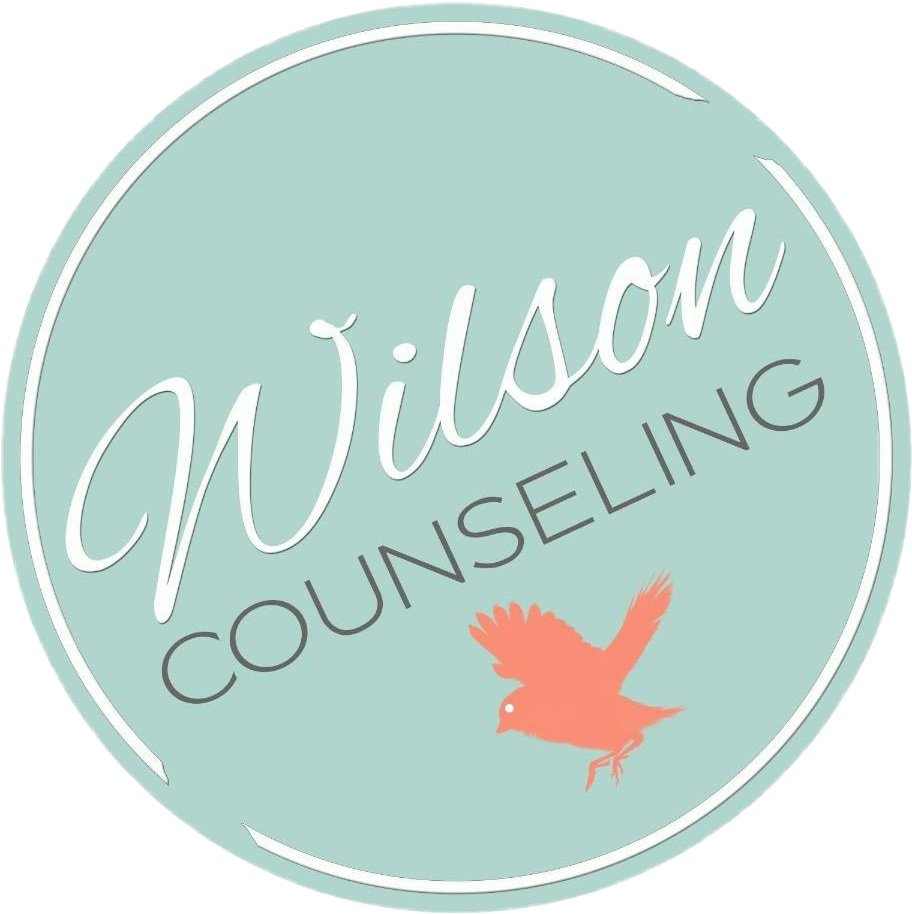Congratulations on the arrival of your precious little one! Bringing a baby home is one of life’s most beautiful and magical moments but it can also be filled with difficulties that you never anticipated. Like everything in life, it’s complicated becoming a new mom or bringing another child into your world.
As a Houston postpartum depression counselor, I understand that the journey into motherhood is a unique and sometimes overwhelming experience. It's not uncommon to encounter emotional hurdles. , One aspect that deserves careful attention is postpartum depression. If are feeling depressed following the birth of your child, you may have postpartum depression.
In this blog post, we try to address all your questions about postpartum depression. Our goal is to create a resource that is both informative and comforting. This post is written to address the needs of new mothers and the people who love them. Whether you are a new mom seeking reassurance or a supportive friend or family member looking for ways to help, we are here for you.
What is postpartum depression?
Postpartum depression is a common and thankfully treatable condition that some new mothers may experience after giving birth. As a postpartum counselor at Wilson Counseling, I want to assure you that if you're feeling overwhelmed, sad, or anxious during this time, you're not alone. Around 10% to 15% of new mothers may experience postpartum depression.
Despite what your critical voice may tell you, postpartum depression is not a reflection of your ability to be a good mother. You are everything you need to be for your baby. Postpartum depression is actually a combination of hormonal changes, sleep deprivation, and the demands of new parenthood. That is a pretty intense and influential combination of things, so it’s no surprise you are struggling. It's crucial to recognize that postpartum depression is not a sign of weakness, but rather a challenge that many new mothers face. Change is hard.
If you or someone you know is experiencing these emotions, reaching out for support is the first step towards healing. Let's explore this together, understanding that seeking help is a courageous and important decision for both you and your baby's well-being.
What are Postpartum Depression Symptoms:
If you are wondering if you have postpartum depression read on to find out more about typical symptoms that mom’s experience.
Persistent Sadness: If you find yourself feeling overwhelmingly sad or tearful, even when things are generally going well, this might be a sign of postpartum depression.
Loss of Interest or Joy: A diminished interest or pleasure in activities you once enjoyed, including those related to your new baby.
Sleep Disturbances: While new mothers are no strangers to sleepless nights, persistent insomnia or the inability to sleep even when the baby is resting may signal a deeper issue. There are things you can do to improve your sleep.
Changes in Appetite: Whether it's a significant increase or decrease in appetite, drastic changes in eating habits
Feelings of Worthlessness or Guilt: Experiencing excessive guilt or a sense of worthlessness, especially in relation to parenting
Difficulty Bonding with the Baby: If forming a connection with your newborn feels challenging, it's essential to explore these feelings
Intense Irritability or Anger: A heightened level of irritability or anger, often beyond what is considered normal, might be a symptom worth addressing.
Physical Aches and Pains: Unexplained physical ailments such as headaches or stomachaches that persist despite medical reassurance.
Difficulty Concentrating: If you find it hard to focus or make decisions, even on simple tasks, it could be a sign that something more than the typical new-parent fatigue is at play.
Thoughts of Harming Yourself or the Baby: This is a critical symptom that should not be ignored. If you're experiencing thoughts of self-harm or harm to your baby, seek help immediately.
Recognizing these symptoms is the first step toward getting help and understanding that you're not alone in facing postpartum depression. Be gentle with yourself in this process. You didn’t choose to feel theses symptoms. The best you can do is to take proactive steps towards your mental health by seeking postpartum treatment in Houston, Texas.
Why Do I Cry More After Having a Baby?
It's completely normal for tears to flow more freely after having a baby, and as a Cognitive-Behavioral Therapy (CBT) therapist in Houston, I want to assure you that what you're feeling is not only normal but also temporary. The postpartum period is a rollercoaster of emotions.
crying can be a way for your body to release stress and adjust to the immense changes happening postpartum.
CBT emphasizes self-compassion as a powerful tool to navigate these emotional waves. Rather than being critical of yourself for feeling sad, try approaching your emotions with kindness. Acknowledge that being a new parent comes with its challenges, and it's okay not to have everything figured out. Self-compassion exercises, such as positive self-talk and mindfulness, can be particularly helpful in soothing the emotional turbulence.
Engaging in regular self-care activities is another crucial aspect of managing postpartum tears. Whether it's taking short breaks for yourself, enjoying a warm bath, or simply going for a walk, these activities contribute to a positive shift in your body chemistry. Exercise, even in small doses, releases endorphins, which are natural mood lifters.
Endorphins you get from exercise counteract the stress hormones in your body, making you feel less sad and more resilient.
Consider integrating these practices into your routine as a way to nurture both your physical and emotional well-being. Remember, the tears you shed now are not a sign of weakness but rather a testament to the immense love and dedication you have for your little one. Big emotions often accompany things we really care about. It hurts because it matters.
With time, self-compassion, and consistent self-care, you'll find that the frequency of tears diminishes, and you'll emerge even stronger on your journey through parenthood.
Types of Postpartum Depression:
Postpartum depression is a nuanced condition, and acknowledging its various types is crucial for effective support and intervention. As a counselor at Wilson Counseling, my aim is to shed light on these different manifestations of postpartum depression. The most commonly recognized types include:
Postpartum Blues:
Often referred to as the "baby blues," this is a milder form of postpartum depression that many new mothers experience. It involves mood swings, tearfulness, and feelings of overwhelm, typically peaking within the first two weeks after childbirth.
Postpartum Depression (PPD):
This is a more persistent and intense form of depression that can develop within the first year after giving birth. Symptoms include changes in sleep and appetite, overwhelming fatigue, and a persistent sense of sadness.
Postpartum Anxiety:
Some mothers may experience heightened anxiety after childbirth, characterized by excessive worry, restlessness, and an intense fear or paranoia that something bad will happen to the baby.
Postpartum Obsessive-Compulsive Disorder (OCD):
In this form of postpartum depression, intrusive and distressing thoughts about harm coming to the baby may lead to compulsive behaviors. It's essential to recognize and address these thoughts without judgment.
Postpartum Post-Traumatic Stress Disorder (PTSD):
Mothers who have experienced a traumatic childbirth may develop symptoms of PTSD, such as flashbacks, nightmares, and avoidance of reminders related to the traumatic event.
Postpartum Psychosis:
Although rare, postpartum psychosis is a severe condition that requires immediate medical attention. Symptoms may include hallucinations, delusions, and extreme mood swings.
Understanding these different types is not about labeling but about recognizing the diverse ways postpartum depression can show up in your body. Each type deserves attention and support tailored to the unique experiences of the mother. If you or someone you know is exhibiting symptoms, seeking postpartum depression treatment in Houston help can make a significant difference in navigating this challenging journey.
Can You Have Postpartum Depression and Still Love Your Baby?
As a postpartum therapist, I understand the depth of emotions that come with postpartum depression, and it's crucial to address the common concern: Can you have postpartum depression and still love your baby?
Absolutely, yes! Love for your baby is not mutually exclusive from postpartum depression. Postpartum depression is not a reflection of your ability to love; instead, it often distorts thoughts and emotions. In Cognitive behavioral therapy for postpartum depression CBT, we explore how certain thought patterns can contribute to feelings of inadequacy or detachment. For instance, a mom experiencing postpartum depression might have distorted thoughts like "I'm a terrible mother" or "My baby deserves better."
Hormonal fluctuations play a significant role in these distorted thoughts postpartum.
The sudden drop in estrogen and progesterone after childbirth can impact neurotransmitters, affecting mood and contributing to feelings of sadness or detachment. It's important to recognize these hormonal shifts as part of the biological aspect of postpartum depression. This is not your fault. It’s just a biological process that you could not have stopped.
Consider Sarah, a new mom who, despite her deep love for her baby, found herself overwhelmed with intrusive thoughts that she didn't love her child enough.She thought there must be something really wrong with her because she didn’t not feel connected to her baby which caused her a lot of shame. Through CBT, Sarah learned to identify and challenge these distorted thoughts. With therapy and support, her perspective shifted, and she began to appreciate the profound love she had for her baby.
Postpartum depression is short-lived with the right help, and the love you have for your baby is a powerful force that can be rekindled and strengthened through the healing process. If you or someone you know is struggling with these feelings, reaching out for support can make a significant difference in rediscovering the joy of motherhood. It may feel beyond your reach, but postpartum depression treatment in Texas can help you work through your depression and feel close to your baby.
Does Mom's Mood Affect the Baby After Birth?
Yes, the mother's mood can have an impact on the baby after birth, and it's entirely understandable to have concerns about this. You want your baby to have the best of everything and you don’t want to do anything that might harm them.
Scientific research consistently supports the idea that a mother's emotional well-being can influence her baby. For instance, a study published in the Journal of Child Psychology and Psychiatry found that a mother's postpartum depression can affect her child's emotional and cognitive development.
However, it's important to note that this doesn't mean you have to be a perfect parent. Every parent has moments of stress and overwhelm. What matters most is your overall emotional connection with your baby. If you're going through a challenging time, remember the many things you are doing well to provide comfort and love.
Ways you can love your baby when you don’t feel connected
Bonding Through Touch:
Even in difficult emotional moments, your physical touch has a profound impact on your baby. Holding, cuddling, and gentle strokes create a sense of security.
Consistent Care:
Routine and consistency are essential for babies. By meeting their basic needs consistently, you are creating a stable and reassuring environment.
Responsive Interaction:
Responding to your baby's cues, even if you're feeling down, fosters a sense of trust. Babies are remarkably resilient, and your efforts to engage with them make a significant difference. You can respond by making eye contact, cuddling with your baby, using a gentle tone with them, holding them close in the baby sling on your body.
Seeking Support:
Recognizing when you need help and reaching out for support is a sign of strength. Whether it's from friends, family, or professionals, having a support system benefits both you and your baby.
While the mother's mood can influence the baby, it's crucial to approach this connection with a balanced perspective. No parent is perfect, and the love and effort you put into caring for your baby will create a positive and lasting impact. If you find yourself struggling, seeking professional support can be a proactive step toward both your well-being and that of your little one.
How Do I Know When I No Longer Have Postpartum Depression?
Recognizing the signs that you are emerging from postpartum depression is a significant step in your journey to recovery. Here are indicators that may suggest you are on the path to wellness:
Improved Mood: One of the clearest signs is a noticeable improvement in your overall mood. You may find yourself experiencing more moments of joy and contentment.
Increased Energy Levels: As postpartum depression lifts, you may notice a gradual return of your energy levels. This can manifest in a reduced sense of fatigue and an increased ability to engage in daily activities.
Better Sleep Patterns: With the easing of postpartum depression, sleep disturbances often lessen. You might find it easier to fall asleep and enjoy more restful nights.
Enhanced Appetite: Changes in appetite are common during postpartum depression. Feeling more in control of your eating habits and experiencing a return to a healthier appetite can indicate positive progress.
Increased Interest in Activities: As the fog of postpartum depression lifts, you may rediscover interest in activities that once brought you pleasure. This includes hobbies, socializing, and engaging with your baby.
More Stable Emotional State: A reduction in intense mood swings, irritability, or feelings of sadness can be a sign that your emotional state is stabilizing.
Improved Concentration: Postpartum depression often impacts cognitive function. Feeling more capable of concentrating and making decisions can signal positive changes.
From a biological standpoint, as your body adjusts to the postpartum period, you may experience a more regulated hormonal balance, contributing to an overall sense of well-being.
Postpartum counseling plays a crucial role in this transformative process. Professional support provides a safe space to explore and understand your emotions, develop coping strategies, and receive guidance on navigating the challenges of new motherhood. If you notice these positive changes but still feel uncertain or overwhelmed, seeking the assistance of a postpartum counselor can be instrumental in solidifying your path towards recovery.
Remember, recovery from postpartum depression is a gradual process, and it's essential to celebrate each step forward. If you or someone you know is experiencing these positive shifts, it may be an indication that the journey towards emotional well-being is well underway.
How Do Dads Feel After Birth?
It's important to acknowledge that the postpartum period isn't exclusive to mothers; fathers, too, can experience a range of emotions during this transformative time. It's normal for dads to feel a mix of joy, excitement, anxiety, and sometimes even depression. As a postpartum counselor at Wilson Counseling, I want to emphasize that these emotions are valid, and it's crucial to address them with understanding and support.
Anxiety and Depression for dad’s postpartum:
Dads may experience anxiety about their new role as a parent, concerns about providing support, and the added responsibility that comes with a growing family. Your life has completely changed when your new baby came home. It’s important to acknowledge that. Dad’s often don’t have as developed support systems so they may not have people in place they can talk to about their feelings and worries. Depression can also manifest, often linked to sleep deprivation and the adjustments required for a newborn. Don’t be afraid to reach our to a therapist for help.
Feelings of a Lack of Control for new dads:
The feeling of a lack of control is common for many new dads. The changes in routine, sleep patterns, and the demands of caring for a newborn can be overwhelming.
Asking for Support for dad’s postpartum:
It's essential for dads to communicate their needs and seek support. Whether it's from friends, family, or professionals, expressing feelings and asking for help is a sign of strength.
Dads can actively participate in their baby's life by engaging in activities like feeding, diaper changes, and spending quality time together. This involvement not only strengthens the bond but also helps dads feel more connected.
Supporting Birthing Partners for dad’s postpartum:
Supporting their birthing partners is a crucial role for dads. This can include offering emotional support, sharing responsibilities, and providing encouragement during challenging moments. If dads are not sure what their partner needs, I recommend asking directly “What can I do for you today,” or “How can I be supportive today?” If your partner is reluctant to accept help, dads may have to try helping anyways and see if it does lighten the load for their birthing partner. People who are overwhelmed often having trouble knowing how and what to ask for when they need help, but it doesn’t mean they don’t need and appreciate help.
Establishing Boundaries for dad’s postpartum:
Setting healthy boundaries is essential for dads. Recognizing when to take breaks and practicing self-care helps maintain emotional well-being.
While the focus often falls on the new mother, it's vital to remember that dads, too, are navigating their unique challenges during this significant life transition. If you're a dad experiencing overwhelming emotions, seeking professional counseling from one of our Houston anxiety treatment therapists can provide valuable insights and coping strategies. The key is to normalize these feelings, foster open communication, and work together to create a supportive environment for both parents and their new bundle of joy.
How Can I Recover from Postpartum Depression?
Recovering from postpartum depression involves a combination of therapeutic techniques tailored to your individual needs. At Wilson Counseling in Houston, we recognize that every journey is unique, and as a counselor, I'm here to guide you through evidence-based approaches that have proven effective for many.
Cognitive-Behavioral Therapy (CBT) for postpartum depression:
CBT equips you with tools to identify and challenge negative thought patterns. For instance, if you find yourself thinking, "I'm not a good enough mother," CBT can help you reframe this thought by exploring evidence that contradicts it. By actively working to change these distorted thoughts, you can gradually shift your mindset toward a more positive outlook on motherhood.
Mindfulness-Based Therapy for postpartum depression:
Mindfulness techniques, such as deep-breathing exercises or mindful meditation, can significantly impact your recovery. Taking a few minutes each day to focus on your breath or engage in a guided meditation can help you stay present in the moment. This mindfulness practice not only provides a valuable break from the stressors of the day but also contributes to a more centered and calm mindset.
Example: Emma, a mother adjusting to the demands of a newborn, incorporated mindfulness into her daily routine. These practices allowed her to navigate the challenges with a calmer mindset, contributing to her recovery.
Interpersonal Therapy (IPT) for postpartum depression:
IPT focuses on improving communication and relationship skills. It can be particularly helpful for addressing the impact of postpartum depression on relationships, providing tools to navigate changes and enhance support systems.
Example: Mark and Lisa, a couple facing challenges due to postpartum depression, underwent IPT together. By improving their communication and understanding each other's experiences, they strengthened their bond and supported each other through the recovery process.
Support Groups for postpartum depression:
Joining a support group with other mothers experiencing similar challenges can provide a sense of community and understanding. Sharing experiences and coping strategies can be both validating and empowering.
Practical techniques from therapies like CBT and mindfulness can be powerful tools in your recovery toolkit if you are struggling with postpartum depression. Remember, progress is a step-by-step process, and finding what resonates with you is key to creating a sustainable path toward emotional well-being.
How can I support my partner who has postpartum depression?
Supporting a postpartum partner is crucial, and it's great that you want to be there for them. Here are some ways you can answer a partner who is seeking guidance on supporting their postpartum partner:
Open Communication:
Encourage open and honest communication. Let your partner know that you are there to listen without judgment and that their feelings are valid. Create a safe space for them to express their emotions and concerns.
Educate Yourself:
Take the time to educate yourself about postpartum depression and the physical and emotional challenges that can come with childbirth. Understanding the condition can help you provide more informed and empathetic support.
Be Patient and Understanding:
Recognize that postpartum recovery is a process, and it takes time. Be patient and understanding of your partner's emotions and physical changes. Avoid placing unnecessary pressure on them to "bounce back" quickly.
Share Responsibilities:
Take on some of the responsibilities associated with caring for the baby and managing the household. This can help alleviate some of the stress and fatigue your partner may be experiencing.
Encourage Self-Care:
Remind your partner to prioritize self-care. Encourage them to take breaks, rest when they can, and engage in activities that bring them joy and relaxation. Offer to take care of the baby while they take some time for themselves.
Offer Practical Help:
Assist with daily tasks such as cooking, cleaning, and grocery shopping. Practical help can go a long way in easing the workload and allowing your partner to focus on their well-being and bonding with the baby.
Connect with a Support System:
Encourage your partner to connect with friends, family, or support groups for new parents. Having a support system can provide additional outlets for sharing experiences and receiving advice.
Seek Professional Help:
If your partner's symptoms are severe or persistent, encourage them to seek professional help. A mental health professional, such as a therapist or counselor, can provide the necessary support and guidance.
Show Affection and Love:
Express your love and affection regularly. Small gestures of kindness, understanding, and reassurance can make a significant difference in how your partner feels supported.
Monitor Your Well-being:
Taking care of yourself is crucial to being able to support your partner effectively. Make sure you are also seeking support, managing stress, and maintaining your well-being.
Remember, every individual and situation is unique, so it's important to adapt your approach based on your partner's needs and preferences. Regularly check in with your partner to see how they're feeling and what specific forms of support they find most helpful.
Are you ready to feel better after having a baby?
If you're ready to take proactive steps toward recovery, postpartum depression treatment online and in-person from one of our caring Houston therapists can provide personalized strategies tailored to your unique needs. You don’t have to go through this alone! Contact us online to schedule an appointment or call 713-565-0922 to ask questions about how we can help.
OTHER THERAPY SERVICES our therapists OFFER IN HOUSTON, TX
In addition to Perinatal and Postnatal Treatment, we have other mental health services that we offer at our Houston, TX counseling office. Our services are available for adults, children, and teens. For individuals we offer Anxiety Treatment, Eating Disorder Counseling, School and College Counseling, Couples Counseling & Marriage Counseling, and Infertility Counseling. As well as Trauma Therapy, PTSD Treatment, EMDR Therapy, and LGBTQ+ Counseling. Our caring therapists also offer Family Therapy, Parenting Counseling, Career Counseling, and LPC Supervision. All of these services are also available through Online Counseling throughout Texas.
If you’re ready to get started, please contact Wilson Counseling today.












